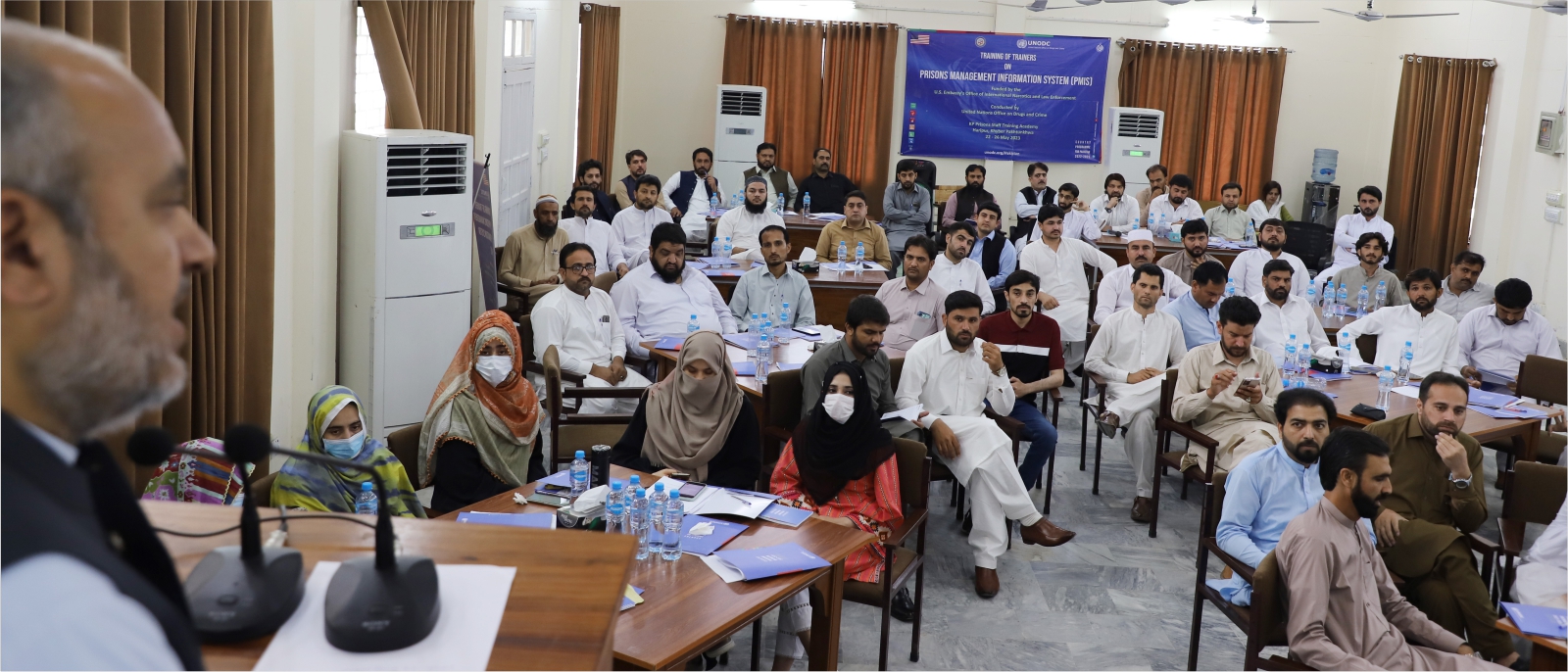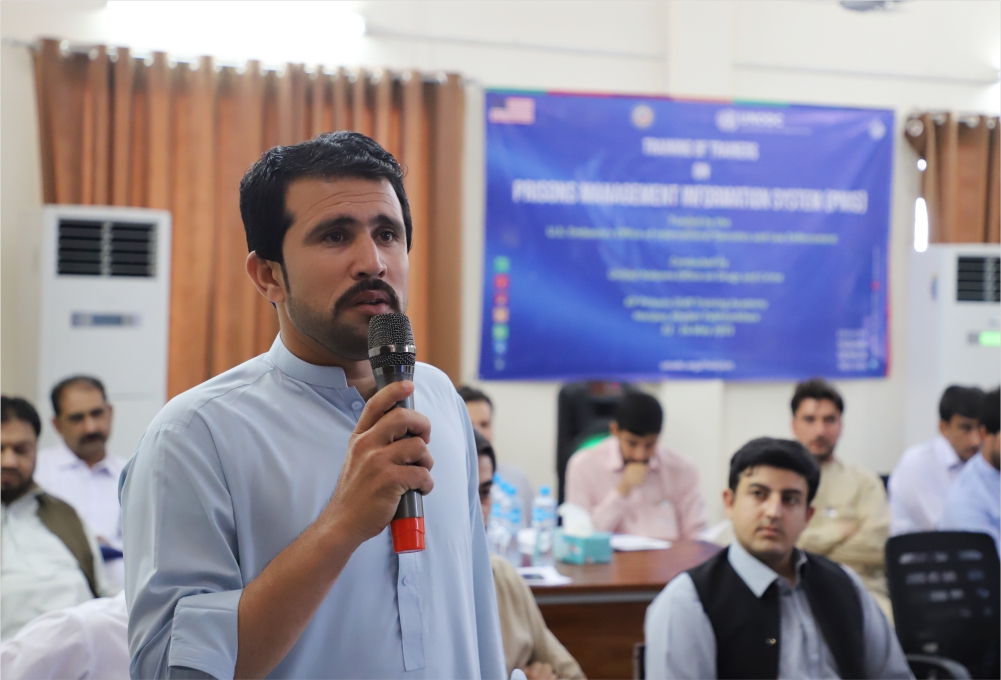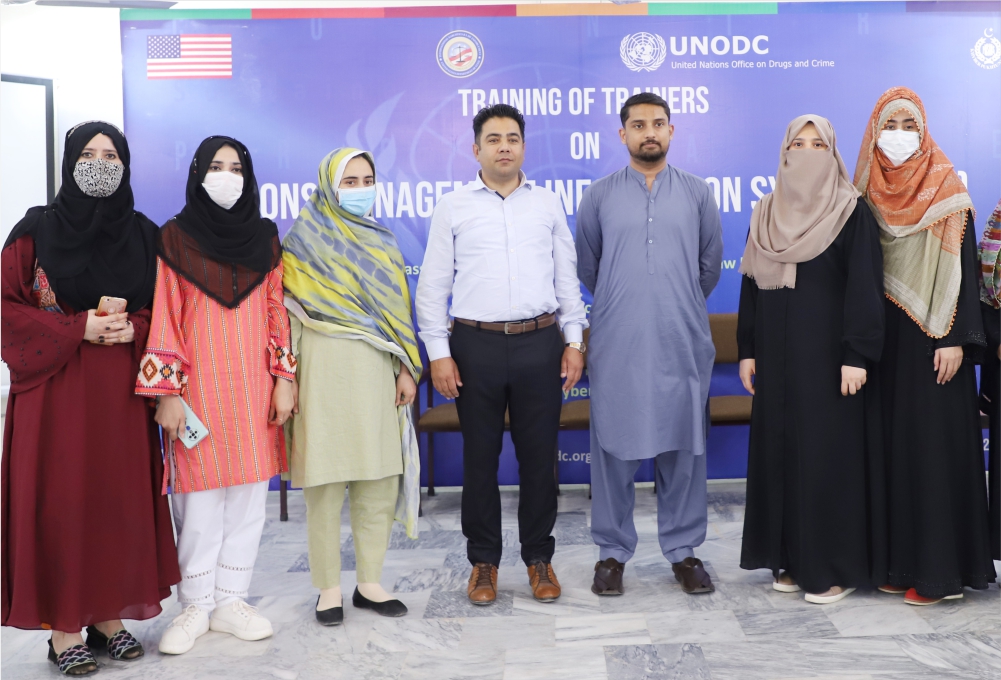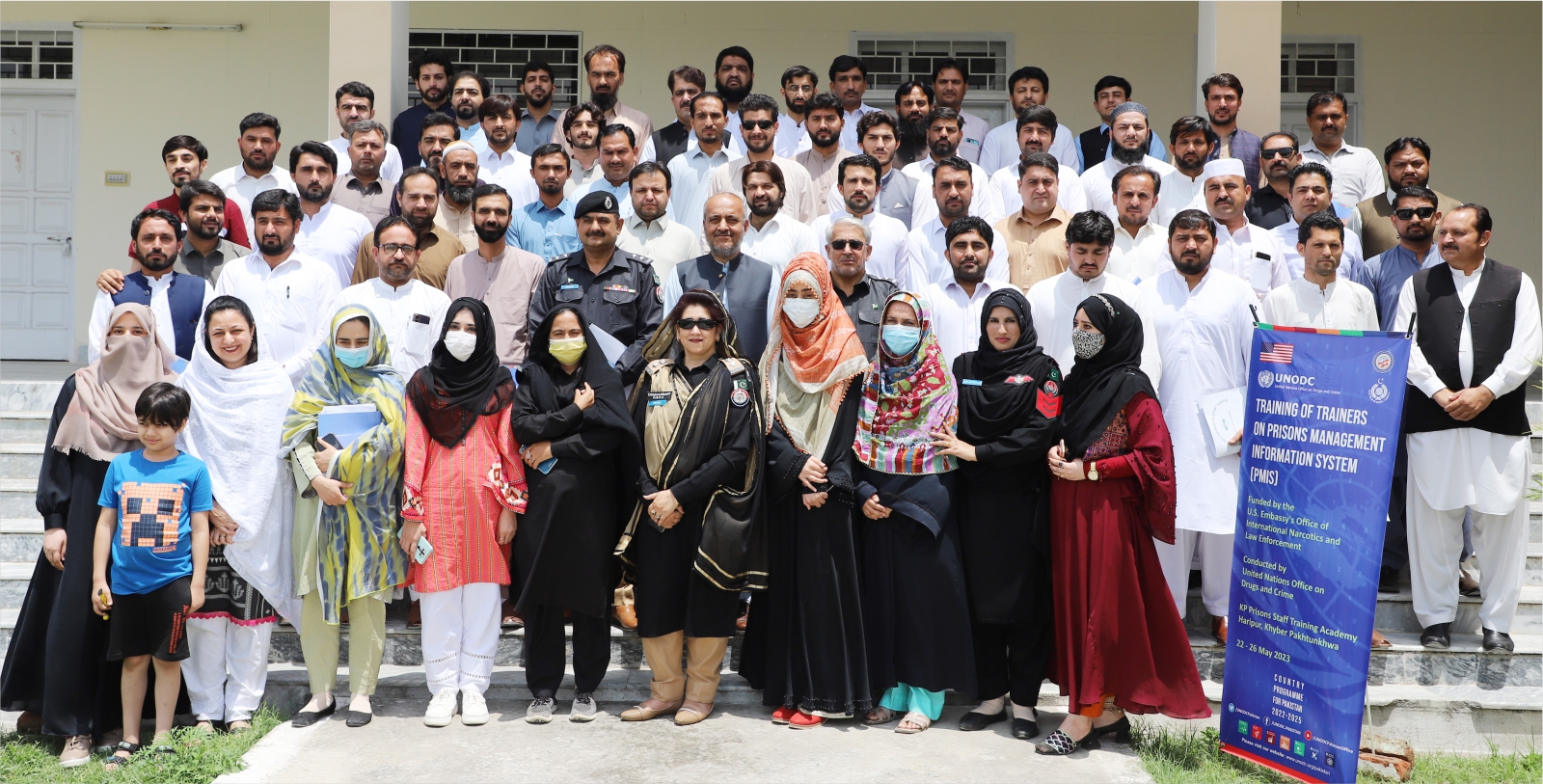
29 May 2023 Islamabad - “I am thankful to INL’s funding for this important training. The Prison Management Information System (PMIS) will transform our traditional culture in prisons and help bring transparency in the system. A successful completion of the 4th round of PMIS course is just the start. We request further support to cater to the needs of this otherwise ignored prisons department,” said Mr. Mohammad Usman Mehsud, Inspector General Prisons Khyber Pakhtunkhwa.
The IG Prisons was speaking at the conclusion ceremony for the 3rd session of the U.S. Embassy-funded PMIS Khyber Pakhtunkhwa Training of Trainers (ToT). The 3rd and 4th sessions were conducted on 08-11 and 22-26 May for 98 prison staff members, including 10 women participants at the Prison Training Academy in Haripur.
Ms. Fauzia Taj, Commander Prison Staff Training Academy Haripur was also present on the occasion and highlighted the need for future trainings that provide opportunities to advance PMIS skills. She added, “PMIS will help organize and regulate our system in the long run. I attended the sessions and I feel it is a fantastic opportunity for the prison staff to optimize their digital skills”.
The U.S. Embassy’s International Narcotics and Law Enforcement Office (INL), with UNODC’s technical support, aims to equip 40 prison facilities with computer networking in Khyber Pakhtunkhwa and the Merged districts. The project also includes provision of IT equipment, development of PMIS, and trainings on the operation and management of PMIS for 210 prison staff members.


The participants were introduced to the PMIS manual and technical modules and learned to use barrack allocations, management of the visitors, and check-in and check-out of inmates. A court production module was also presented, which provided an overview of how efficiently the production process is managed in the jail using PMIS. Hospital and medical management modules addressed prescriptions in OPD, hospital admissions and, adding, transferring, and dispensing medicine. The training concluded with the HR module covering staff profile management.
The trainees expressed their appreciation for the PMIS course training. One of the participants, Ms. Rabia Amin, Assistant Superintendent, District Jail Mardan remarked, “I take care of the female section and coordinate back and forth with the technical staff. With the introduction of PMIS, staff members will be responsible for making their own entries into the system. This will reduce our workload and save us time”.
Another participant, Mr. Waseem Saleem, Computer Operator, District Jail Hangu highlighted the significant advantages that the PMIS will bring to the citizens. He said, “Prisoners and their families will greatly benefit from the digitized system, as it will increase transparency and ease visitation.”
The trainings took place against the backdrop of the need for a modern and efficient system for prison management in Khyber Pakhtunkhwa. In the past, prison inmate information was documented in registers, which made managing and retrieving these records a challenging task. These records contained comprehensive details regarding the legal backgrounds of inmates across different prisons, encompassing admission dates, fingerprints, court appearances, jail transfers, medical histories, parole information, and crime details. With the implementation of PMIS, the control and management of prison affairs have become much more efficient. This system demands fewer personnel and less time for its operation.
The two trainings concluded with the trainers’ overview of their respective modules and opened the floor for suggestions and inputs to be incorporated into the system. Mr. Mohammad Usman Mehsud, Inspector General Prisons Khyber Pakhtunkhwa and Mr. Hashmat Ullah, Additional Inspector General Prisons awarded the participation certificates and congratulated the prison staff on their successful completion of the PMIS course.
The training staff included, Mr. Muhammad Waseem, Superintendent Central Prison Karak, constables, and the security, ministerial, technical staff from the prison health department.
